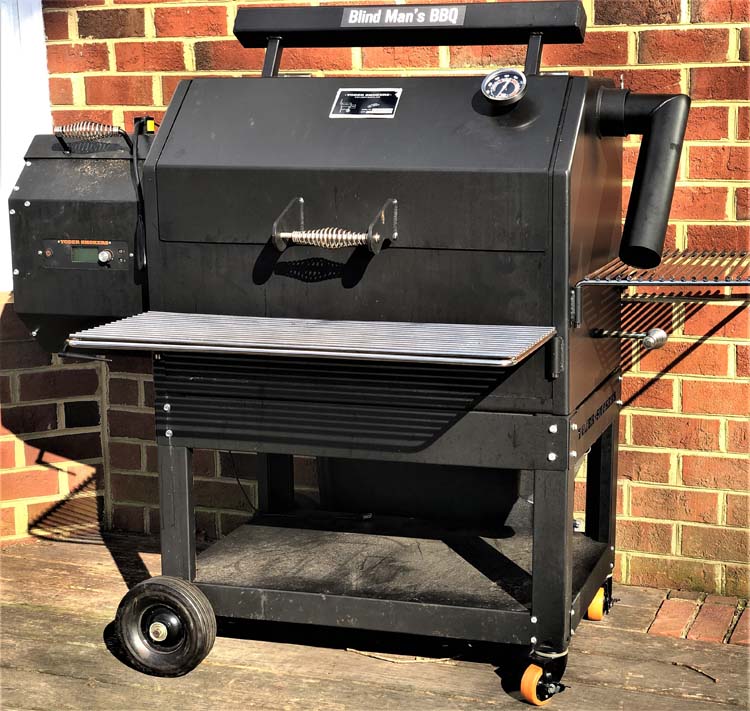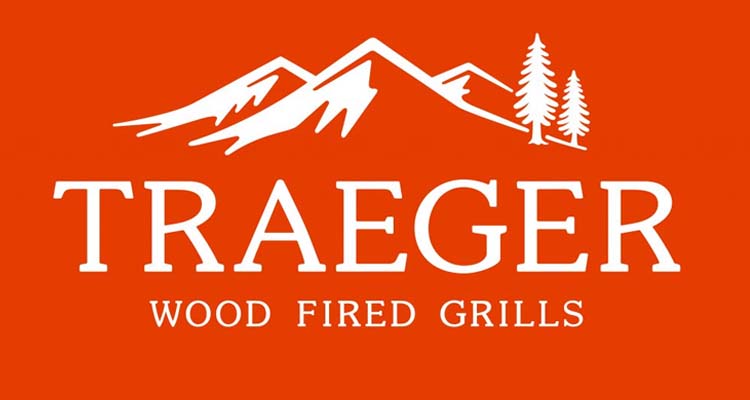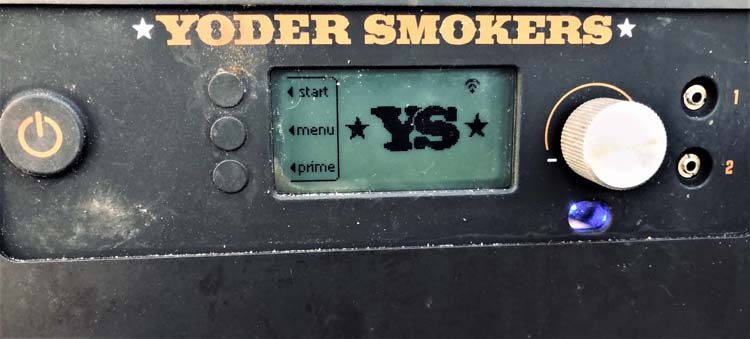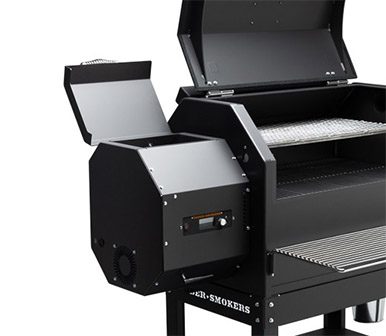Buying a pellet grill is no small investment. If you’re planning on parting with your hard-earned cash you want to know that what you’re buying is worth every cent.
With that in mind, we’re comparing Traeger, the grandaddy of pellet grill manufacturers with a huge range of mass-market models, with Yoder who has a reputation for building competition-grade, high-end smokers.
We’ll look at how the two brands compare and do an in-depth comparison between the Traeger Timberline and the Yoder YS640S to help you make your decision.
Let the Yoder VS Traeger battle begin.
|
|
|
Pros: - Loaded with tech
- Induction side plate
- Prep and storage areas
|
Pros: - Made in the USA
- Full steel construction
- Removable firebox cover for grilling
|
|
|
|
|
|
|
|
|
|
Pros:
- Loaded with tech
- Induction side plate
- Prep and storage areas
Pros:
- Made in the USA
- Full steel construction
- Removable firebox cover for grilling
Yoder VS Traeger, which pellet grill is best?
While the Traeger lineup starts at around $800 for their most popular mass-market model, the Pro 575, if you’re considering a Yoder, I’ll assume your budget is much higher than that.
The most popular Yoder is the YS640s, which sells for quite a lot less than the top-of-the-line Traeger Timberline.
The Timberline comes in two sizes (880 and 1320 square inches on the XL), while the YS640S sits in the middle with 1,070 square inches of real estate.
Both grills are well-built and full of the bells and whistles you’d expect from their high-end price tags, but they’re designed to appeal to very different people, so let’s get to know them a little better.
Yoder YS640s

The YS640s screams quality, from its full steel construction to the proprietary micro-controller chip and code combination that Yoder uses instead of the more common PID controllers.
The grill is Wi-Fi enabled and is powered by the FireBoard app. I love seeing manufacturers partner up with leading brands like FireBoard rather than wasting time and money developing tech products that end up worse than the competition.
See our full YS640S review for a more detailed look at how well the app performs.
With 1,070 square inches of cooking space over its two shelves and 11.5″ of headroom, the YS640s can smoke enough food to fill a fair-sized party while still being compact enough that you won’t mind firing it up for one or two friends.
The YS640S impressed us enough to include it on our list of Traeger alternatives.
The thick steel pipe and plate have a 10-year guarantee against burnout and excellent heat retention, making it great for smoking in colder climates.
[TAG13]
One of the unique features of the YS640s is Yoder’s Variable Displacement Damper, a metal plate that concentrates the heat produced by the firebox straight up instead of into the cooking chamber. This enables you to properly sear with an optional aluminum grill grate.
Yoder YS640s Specs:
| Cooking space | 1,070 square inches of cooking space from two 16″ x 20″ cooking grates in the main chamber and a 15.5″ x 28″ slide-out shelf on the second level. |
| Hopper size | 20lb capacity side-mounted pellet hopper |
| Grill rack material | Cooking shelves made from 7/16″ hardened chrome-plated round bar steel |
| Construction | Constructed of 10 gauge steel for the hopper and 14 gauge steel for the cart |
| Control | Uses Yoder’s new Adaptive Control System for temperature control |
| WiFi | WiFi and YS Drive App-enabled |
| Temperature range | 150°F to 600°F in 5º increments |
| Dimensions | L61″ x H54” x D36.24″ |
| Weight | 335lbs |
| Warranty | 10-year warranty vs. burn-through |
| Manufactured in | USA |
What I liked:
- Made in the USA – There aren’t many brands left still manufacturing pellet grills in the USA
- Full steel construction – Weighs 46lb more than the larger Traeger Timberline
- Variable Displacement Damper means you can sear, something pellet smokers traditionally struggle with
- 10-Year warranty – Includes a 3-year warranty for the electronic control system and a 1-year warranty for the igniter
What I didn’t like:
- No pellet dump feature – I like to have the option to easily remove unused pellets
Traeger Timberline
Compared to the Yoder, the Timberline’s sleek curves make it look more like a tech product.
This pellet grill has an oval cooking chamber with a super high-profile hood that allows it to fit three cooking racks despite its compact form.
Traeger markets the Timberline as an “entire outdoor kitchen”. The cart features a closed cupboard and open shelving to give you a range of storage options. The grill is designed to be built-in to an outdoor kitchen.
Along with extra cooking space, the unique design of the Timberline contributes to an even distribution of heat and smoke.
A large opening behind the drip tray directs heat and smoke up the back of the cooking chamber, where it hits the curved hood and is directed back over the food on the top rack.
To assist with this downdraft effect, the Timberline doesn’t have a conventional chimney. Instead, it has an exhaust vent that runs the length of its back.
The Timberline is constructed of sturdy stainless steel, and the cooking chamber is double-walled for increased heat retention.
The PID controller is WiFi-enabled and works with the Traeger app and Amazon Alexa.
The Timberline also has a Super Smoke option, which allows the smoke to linger for longer, and a Keep Warm Option that keeps the cooking chamber at 165°F.
Timberline Specs:
| Cooking space | 850 square inches of cooking surface (hence the name) |
| Hopper size | 24lb capacity side-mounted pellet hopper |
| Grill rack material | Cooking shelves made from heavy stainless steel rods |
| Construction | Double-wall stainless steel interior |
| Control | Timberline D2 temperature controller |
| WiFi | WiFIRE Technology, Amazon Alexa, and Traeger app-enabled |
| Temperature range | Cooking range from 165°F to 500°F in 5º increments |
| Dimensions | L51″ x H46” x D28″ |
| Weight | 213lbs |
| Warranty | 3-year warranty (US only) |
| Manufactured in | China |
What I liked:
- Induction plate – First time I’ve seen this on a pellet grill and a great option for searing steak or warming sauces or sides.
- Fully insulated dual-wall construction
- The oval shape encourages better heat and smoke distribution.
- Has Keep Warm and Super Smoke settings
- 10-year limited warranty
What I didn’t like
Company History: Traeger VS Yoder
To make this comparison as fair as possible, we’ll be looking at Traeger and Yoder as brands and comparing two of their flagship products, the YS640s and the Timberline 850.
We’ll give you an overview of the quality of the brand and then drive into the specs of two of their tops grills, comparing their features to each other and to each company’s wider range.
Traeger

When people think of pellet grills, Traeger is usually the first name to crop up. The company patented the first pellet grill back in 1986, and it went into production in 1988.
Traeger mass markets their grills. They are widely available from a vast range of providers and are manufactured in China.
The first generation of Traeger grills were well-designed and well-built machines, but there have been some quality issues with later generations.
Thankfully, the most recent models, including the Timberline 850 we’ll be looking at, seem to have reversed this issue.
The current batch of high-end Traegers has all the build-quality of their first-generation predecessors coupled with up-to-date tech, like built-in temperature probes and WiFi.
We’ve already compared Traeger to Pitt Boss and REC TEC, and there seems to be a general consensus that, while high-end Traeger grills are still well regarded, they tend to be seen as a starter brand.
The old Traeger domination of the pellet grill market has been well and truly challenged by other brands.
Yoder

Founded in 2007, Yoder has a distinct focus on manufacturing competition-quality smokers. They mention competition (or some variation on it) five times on their “About” page alone!
Yoder manufactures its products in the US, and the quality of its workmanship is one of its main selling points.
In Yoder’s words, “people who really know BBQ recognize the quality workmanship we put into our line of smoker pits,” and it is true that their smokers have seen a lot of success on the competition circuit.
“People who really know BBQ recognize the quality workmanship we put into our line of smoker pits“
https://www.yodersmokers.com/
In recent years, Yoder has looked to bridge the gap between competition and backyard smoking, and the YS640s is an excellent example of this.
It is big enough to do some serious smoking, has the customary excellent Yoder build quality, but is inexpensive enough to remain competitive in the lower price ranges.
Traeger VS Yoder: Head to Head
Now that you’ve got a better idea of the Traeger and Yoder as manufactures, and the specs of their flagship grills, lets pit them against each other.
Temperature control
Both Traeger and Yoder use advanced temperature controllers to ensure that their grills can hold as exact a temperature as possible.
Traeger uses the D2 PID (proportional–integral–derivative) controller which can hold a consistent temperature of +/- 5°F on most of its grills.
Additionally, the Timberline range has a few other additions to help with temperature control.The TRU Convection system cooks food up to 20% faster while the TurboTemp system helps to bring the grill up to cooking temperature quickly and compensates for the loss of heat due to the door being opened.
The D2 Direct Drive system for the auger drill on the Timberline uses DC current, so it can change speed and even go into reverse to keep the temperature stable.
Yoder famously uses its own Adaptive Control System with proprietary code, which they claim provides superior flexibility, efficiency, and accuracy.
The ‘S’ series microprocessor is one of the most intelligent controllers on the market and can monitor multiple input variables and adapt to them to keep a stable temperature. This includes the door being opened, cold meat being put on the grill, or even the type of wood pellets being used.

It should be noted that, as we mentioned above, the Timberline 850 has some documented issues with its temperature control, specifically with inaccurate thermometers which cannot be calibrated.
While the Yoder models lack the TRU Convection and TurboTemp system, this is more than made up for by their advanced temperature controller, pit calibration, and component testing capabilities.
Pellet Hopper Capacity
Both the Timberline 850 and YS640s have large 20+lb pellet hoppers, with the smaller Timberline 850 having the larger 24lb hopper.

Yoder comes with a 20lbs hopper capacity
Both hoppers are side-mounted, but the high-end Traeger models now have a pellet cleaning hatch at the bottom of the hopper that allows old or wet pellets to be cleared out and different types of wood to be used.
The Traeger app also includes a low pellet alarm, which notifies the user when the pellets need to be refilled.
These quality-of-life additions make pellet use, cleaning, and refilling just that little bit easier on the top-shelf Traegers.
Clean out
Both Yoder and Traeger fit their pellet grills with a built-in grease trap. The concealed grease management system on the Timberline 850 has an angled trap that directs the grease into a run-off collector on the side of the grill for an easy clean.
The Traeger app will also remind you to clean out your grill after a few uses. The pellet ash is accessed on both grills by removing the cooking trays.
Cleanup is always the worst part of any smoking session, but the concealed grease management system on the Timberline 850 does make it that little bit easier.
WiFi / App experience
WiFi connectivity used to be what competitors used to set themselves apart from Traeger. The company has now caught up, and the Timberline series is one of the few pellet grills available that is compatible with Amazon Alexa.
All of Yoder’s YS series pellet grills are WiFi-enabled and work with the YS Drive app. Both apps allow you to monitor the internal temperature of both the pit and also your food through the use of a probe. The YS640s has two probes to the Timberline 850’s one.
The Traeger app does have a massive database of searchable recipes with automatic temperature settings, which is very handy, although it has been criticized for lag issues in the past.
Appearance
How much you enjoy the look of your pellet grill is largely subjective.
Both the YS640s and Timberline 850 do have similar squat, muscular outlines.
While that does make them visually different from other pellet grills on the market, they are sufficiently similar to each other than one brand isn’t able to win out over the other on style alone.
Traeger has a much broader range of grills than Yoder, so if appearance is important to you, you are more likely to find a Traeger grill that suits your taste.
Customization options & accessories
When it comes to customization and accessories, Yoder has a lot more options for you to choose from. The YS640s alone comes with 12 optional extras, from dual-door thermometers to a competition cart with stainless steel shelves.
This makes a lot of sense since Yoder is focused on creating competition-grade smokers, while Traeger accessories are mostly just basics like a cover, drip tray liners, although the front folding shelf is nice.
Customer service
Both Yoder and Traeger have a reputation for excellent, US-based, customer services. They don’t go as far as handing out business cards with their owner’s cell numbers on them, as REC TEC does, but they do answer the phone and are happy to help in whatever way they can.
Warranty
Yoder beats Treager hands down on this one. The Traeger warranty is 3 years long, whereas all Yoder models come with a 10-year warranty, which includes a 3-year warranty for the electronic control system and a 1-year warranty for the igniter.
Stand out features: Yoder
The standout feature for Yoder, as a manufacturer, is the sheer construction quality of their grills. Made in the USA of 10 gauge steel for the hopper and 14 gauge steel for the cart and backed up by a 10-year warranty, Yoder grills are very much built to last.
Stand out features: Treager
There was a time when Treager lagged behind in adding modern tech to their grills. The Timberline range is WiFi and app-enabled, and you can even use your Amazon Alexa to make it voice-activated.
The Traeger app also hosts a lot of recipes and other content alongside the usual temperature monitoring and timer functions.
Alternatives
If you’re still not sure if Treager or Yoder makes the grill for you, don’t worry; there are other alternatives out there.
MAK
MAK Grills have the distinction of being Meathead Goldwyn’s pellet smoker of choice. Manufactured in Oregon, MAK Grills are famed for their versatile programmable controllers and Highly accurate temperature control. The only downside is that they are quite expensive, with the 2 Star General Pellet Grill retailing at around $2,700.
Memphis Grills
Owned by Dalsin Industries, a sheet metal fabrication company from Bloomington, Minnesota, Memphis Grills produce some excellent high-end pellet grills.
The company has won several accolades for its grills. Forbes named the Memphis Elite as “the best one, and not only can do it all, but can do it all really well, a true all in one gourmet outdoor solution,” in their BBQ Grills buyers guide.
Steven Raichlen, of cooking show “Project Smoke” fame, described the Memphis Wood Fire Grill as “the Tesla of pellet grills, with sophisticated electronics to control cooking temperature and smoke output and even check the doneness of your reverse seared tri-tip or turkey.”
Wrapping it up
Both Yoder and Traeger produce some excellent pellet grills. The high-end models, like the Timberline 850 and YS640s, have slight differences in design ethos that make them better suited to individual users.
For instance, you might choose a Yoder if you value:
- Excellent, competition, temperature control
- Reliable, made in the USA, build quality
- A comprehensive 10-year warranty
Whereas, you might buy a Traeger if you want:
- Enhanced app functions and Alexa connectivity
- More cooking functions, such as the Super Smoke, Keep Warm and Turbo Temp systems
- Small, quality of life, additions, such as a low pellet alarm and an easy to clean pellet hopper
Do you think there is a clear winner between Traeger and Yoder? Or does one of the alternatives we mentioned beat them both hands down? We’d love it if you’d let us know in the comments below!
 Backyard GrillingWeekend WarriorsAdvice from DadBeard GroomingTV Shows for Guys4x4 Off-Road CarsMens FashionSports NewsAncient Archeology World NewsPrivacy PolicyTerms And Conditions
Backyard GrillingWeekend WarriorsAdvice from DadBeard GroomingTV Shows for Guys4x4 Off-Road CarsMens FashionSports NewsAncient Archeology World NewsPrivacy PolicyTerms And Conditions
